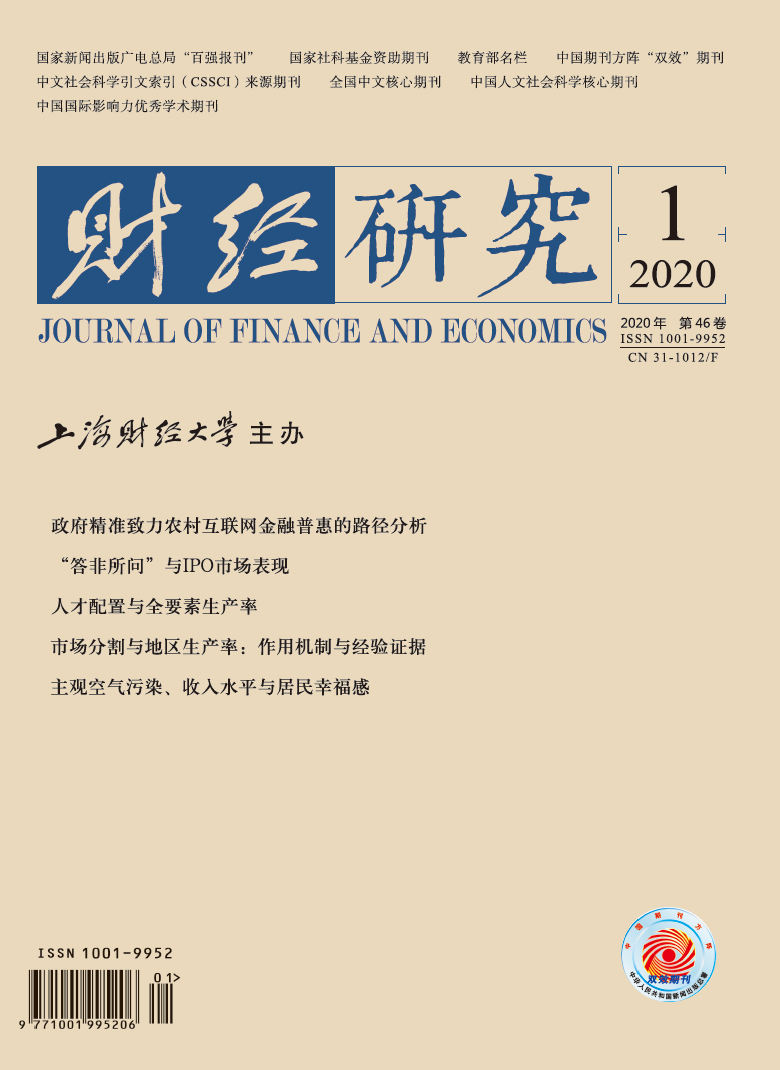Since 2012, China’s provinces have gradually introduced a serious illness insurance(SII)in the new rural cooperative medical system(NCMS). Based on the micro-household survey data and the multiple difference method, this paper empirically studies the impact of major illness insurance on the health and medical expenditure of rural residents on the basis of correcting the heterogeneity of self-assessed health reports. The results confirm that more generous medical insurance has increased the improvement of rural residents’ health by 10%-20%, and this effect is still significant in the third year after the implementation of the policy. SII has also stimulated a substantial increase in the medical expenditure of rural residents, resulting in a 5% increase in per capita household medical expenditure and 29% increase in individual hospitalization expenditure, respectively. But these effects differ among different populations. From the perspective of the health improvement effect, rural middle and upper income families are the biggest beneficiaries. From the perspective of the incentive effect of medical expenditure, the incentive effect of SII increases with the increase of family incomes. The results of the conditional quantile DID model show that SII has significantly stimulated the expense of the group with higher medical expenses, and the group with less medical expenditure has not been influenced by SII. A series of robustness tests prove the robustness of our results. The conclusions of this study provide an empirical basis for further improving the basic medical insurance system in China.
 / Journals / Journal of Finance and Economics
/ Journals / Journal of Finance and EconomicsJournal of Finance and Economics
LiuYuanchun, Editor-in-Chief
ZhengChunrong, Vice Executive Editor-in-Chief
YaoLan BaoXiaohua HuangJun, Vice Editor-in-Chief
Does New Rural Cooperative Medical Insurance Improve the Health of Rural Residents?
Journal of Finance and Economics Vol. 46, Issue 01, pp. 141 - 154 (2020) DOI:10.16538/j.cnki.jfe.2020.01.010
Summary
References
Summary
[1]Chen H, Deng P Y. Health effect evaluation of the urban employee basic medical insurance[J]. Social Security Studies, 2016, (4): 44-52. (In Chinese)
[2]Cheng L G, Zhang Y. The new rural cooperative medical scheme: Financial protection or health improvement?[J]. Economic Research Journal, 2012, (1): 120-133. (In Chinese)
[3]Hu H W, Liu G E. Impact of urban resident basic medical insurance on national health: Effect evaluation and evidence of mechanism[J]. South China Journal of Economics, 2012, (10): 186-199. (In Chinese)
[4]Huang F, Gan L. Excess demand or appropriate demand? Health insurance, medical care and mortality of the elderly in urban China[J]. Economic Research Journal, 2010, (6): 105-119. (In Chinese)
[5]Li H, Yu W. Effects of the government’s health expenditure on the health of rural residents in China[J]. Social Sciences in China, 2013, (10): 41-60. (In Chinese)
[6]Ma C, Gu H, Sun X H. Does higher grade of medical insurance lead to better health: Evidence from nature experiment of urban-rural integrated medical insurance system[J]. Journal of Public Management, 2015, (2): 106-118. (In Chinese)
[7]Pan J, Lei X Y, Liu G E. Does health insurance lead to better health?[J]. Economic Research Journal, 2013, (4): 130-142. (In Chinese)
[8]Peng X B, Wang T Y. Does health insurance relive health inequality among children[J]. China Industrial Economics, 2017, (12): 59-77. (In Chinese)
[9]Xie E. Income-related inequality of health and health care utilization[J]. Economic Research Journal, 2009, (2): 92-105. (In Chinese)
[10]Zhao Z, Hou Z G. Health demand in urban China and Grossman model: Evidence from cross-sectional analysis[J]. Economic Research Journal, 2005, (10): 79-90. (In Chinese)
[11]Zhao Z. The status quo of the health of China’s rural population and the determinants[J]. Management World, 2006, (3): 78-85. (In Chinese)
[12]Angrist J D, Pischke J S. Mostly harmless econometrics: An empiricist’s companion[M]. New Jersey: Princeton University Press, 2008.
[13]Arrow K J. Uncertainty and the welfare economics of medical care (American Economic Review, 1963)[J]. Journal of Health Politics, Policy and Law, 2001, 26(5): 851-883. DOI:10.1215/03616878-26-5-851
[14]Beck T, Levine R, Levkov A. Big bad banks? The winners and losers from bank deregulation in the united states[J]. The Journal of Finance, 2010, 65(5): 1637-1667. DOI:10.1111/j.1540-6261.2010.01589.x
[15]Card D, Dobkin C, Maestas N. Does medicare save lives?[J]. The Quarterly Journal of Economics, 2009, 124(2): 597-636. DOI:10.1162/qjec.2009.124.2.597
[16]Chen Y Y, Jin G Z. Does health insurance coverage lead to better health and educational outcomes? Evidence from rural China[J]. Journal of Health Economics, 2012, 31(1): 1-14. DOI:10.1016/j.jhealeco.2011.11.001
[17]Finkelstein A, McKnight R. What did medicare do (and was it worth it)?[R]. NBER Working Paper No.w11609, 2005.
[18]Finkelstein A, Taubman S, Wright B, et al. The Oregon health insurance experiment: Evidence from the first year[J]. The Quarterly Journal of Economics, 2012, 127(3): 1057-1106. DOI:10.1093/qje/qjs020
[19]Kelly I R, Markowitz S. Incentives in obesity and health insurance[J]. Inquiry, 2009-2010, 46(4): 418-432. DOI:10.5034/inquiryjrnl_46.4.418
[20]Lei X Y, Lin W C. The new cooperative medical scheme in rural China: Does more coverage mean more service and better health?[J]. Health Economics, 2009,18(S2): S25-S46. DOI:10.1002/hec.1501
[21]Lindeboom M, van Doorslaer E. Cut-point shift and index shift in self-reported health[J]. Journal of Health Economics, 2004, 23(6): 1083-1099. DOI:10.1016/j.jhealeco.2004.01.002
[22]Mihaylova B, Briggs A, O’Hagan A, et al. Review of statistical methods for analysing healthcare resources and costs[J]. Health Economics, 2011, 20(8): 897-916. DOI:10.1002/hec.1653
[23]Skinner J S, Fisher E, Wennberg J E. The efficiency of medicare[R]. NBER Working Paper No.w8395, 2001.
[24]Tanaka S. Environmental regulations on air pollution in China and their impact on infant mortality[J]. Journal of Health Economics, 2015, 42: 90-103. DOI:10.1016/j.jhealeco.2015.02.004
[25]Wagstaff A, Lindelow M. Can insurance increase financial risk? The curious case of health insurance in China[J]. Journal of Health Economics, 2008, 27(4): 990-1005. DOI:10.1016/j.jhealeco.2008.02.002
Cite this article
Zhao Weimin. Does New Rural Cooperative Medical Insurance Improve the Health of Rural Residents?[J]. Journal of Finance and Economics, 2020, 46(1): 141-154.
Export Citations as:
For
ISSUE COVER
RELATED ARTICLES




 4932
4932  5074
5074

